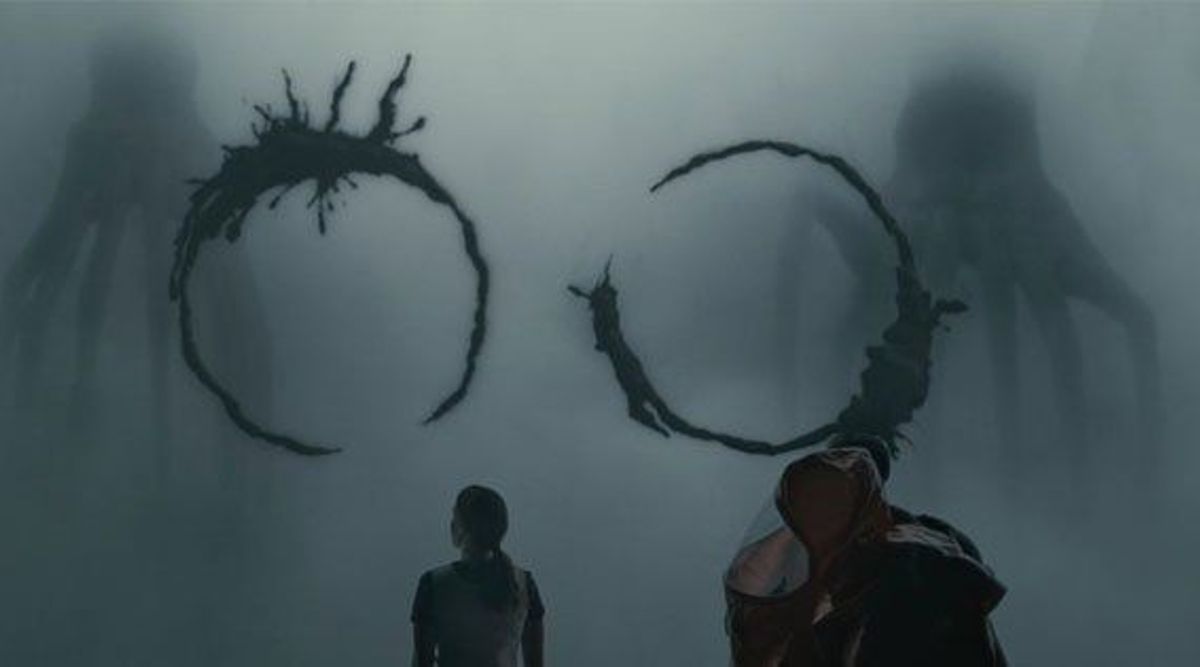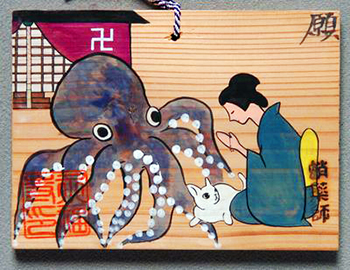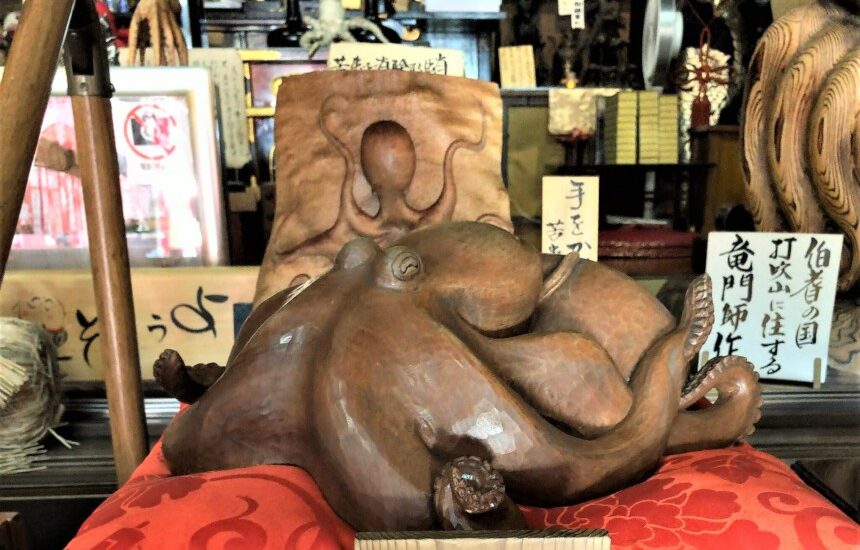One of my favorite films about aliens is Arrival (2016), based on Ted Chiang’s Story of Your Life (1998). It portrays otherworldly visitors as enlightened extraterrestrials with a literally timeless grasp of language and causality. Aside from being spacefaring travellers and inhabiting spacecraft that leave no residue, traces, or pollution, the advanced creatures of Arrival perceive time as an unbroken whole, in which the future, past, and present can be communicated and experienced.
Through their non-linear perception of time and logograms, they impart to the protagonist, played by Amy Adams, an almost enlightened or preternatural ability to perceive, dream of, and learn from events in the future. They are benevolent bodhisattvas from beyond the stars, perhaps even from different dimensions.
The aliens “Peter” and “Costello” are portrayed as heptapods, which vaguely resemble the Cephalopod species of the world. Sentient beings like octopuses and squids have always exuded an otherworldly quality to them, and there have even been articles written about how close octopuses come the closest to intelligent alien life that we have. Science fiction and fantasy tales have, down the decades, even ascribed powers of the mind like telepathy or transcendental magic to Cephalopods. Recently, I have found a delightful folk tale from Kyoto that ties the no less than the Medicine Buddha, or Bhaisajyaguru. (Yakushi Nyorai in Japanese)

Just earlier this morning, I encountered a series of Tweets by @KyotoDailyPhoto about Eifuku-ji (永福寺), otherwise known as Temple of the Eternal Bliss. It is a relatively humble place, crowded among the stores of the Shinkyogoku shopping arcade (a five minute walk from Kyoto-Kawaramachi Station). Local residents and informed tourists and pilgrims actually know this place as Tako Yakushi-do (蛸薬師堂): the Temple of the Octopus Medicine Buddha. The Twitter account lists three reasons why this place is colloquially tied to an octopus. The first reason is the most comprehensive, and the most heartwarming. I quote the relevant Tweets in full:
“In 1249 a monk from the temple by the name of Zenko (善光) broke his Buddhist vows to buy his seriously ill mother a meal of octopus (he could only buy live octopus). His odd behaviour at the market caught the attention of the local people. 5/12
“Gathering around him they demanded Zenko show them what was in the bag. Reluctantly he emptied the contents. In place of the octopus were 8 glowing sutras (1 per tentacle). The crowd prostrated themselves before the holy scriptures & begged Zenko to forgive their behaviour. 6/12
“As soon as Zenko returned to the temple the sutras transformed back into an octopus. The octopus then returned to its true form, that of Yakushi, emitting a brilliant Lapis Lazuli light. This sacred light cured Zenko’s mother & propelled the temple to fame & fortune. 7/12”

These days at Eifuku-ji, there is a little octopus sculpture embodying one of the Medicine Buddha’s more unusual animal guises. It is called affectionately “Nade Octopus” (なで蛸); nade means to stroke, pet, or caress gently. By stroking this octopus with the left hand, a visitor can have their illness healed, and as such has become a popular fixture of the Shinkyogoku area.
In the folk tale of the Octopus Medicine Buddha and Arrival, we see otherworldly beings bringing healing and understanding to the people. They represent the unfathomable, the depthless, the incomprehensible, but that which is fundamentally benevolent, placid, and benign. Their very appearance is disconcerting without appearing (unless there is artistic exaggeration) threatening, and can even look cute and endearing, with tako characters being a fixture in Japanese pop culture and anime. The mystery and mystique of Cephalopods perhaps captures, visually and artistically, the inexpressible, ineffable nature of enlightened beings. We may fear the unknown and the infinite, but at least in Tako Yakushi and the heptapods of Arrival, we are slightly reassured that they want to share infinity with us.


